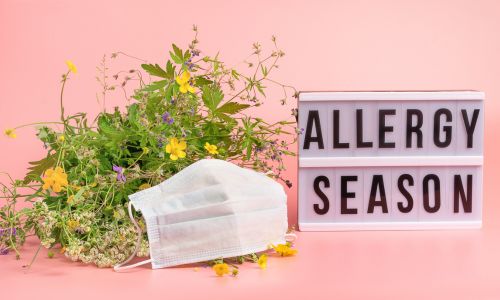Seasonal allergies, also known as hay fever or allergic rhinitis, occur when the immune system overreacts to allergens present in the air during specific times of the year. Common triggers include pollen from trees, grasses, and weeds, as well as mould spores. When exposed to these allergens, the immune system releases histamines and other chemicals, leading to symptoms such as sneezing, congestion, itching, and watery eyes. The severity of symptoms can vary depending on individual sensitivity and the concentration of allergens in the environment. Understanding the triggers for seasonal allergies is crucial for effective management and prevention. By identifying specific allergens and learning how they affect the body, individuals can take proactive steps to minimize exposure and alleviate symptoms, ultimately improving their quality of life during allergy seasons.
Common Triggers and Allergy Symptoms
Common triggers for seasonal allergies encompass various airborne particles, including pollen from trees, grasses, and weeds, as well as mould spores. These allergens can become airborne and infiltrate indoor and outdoor environments, causing allergic reactions in susceptible individuals.
During allergy seasons, individuals commonly experience a range of symptoms triggered by exposure to allergens. Sneezing, congestion, itching, and watery eyes are hallmark symptoms of seasonal allergies, often accompanied by nasal discharge and sinus pressure. These symptoms result from the body’s immune response to allergens, leading to inflammation in the nasal passages and other affected areas.
Proactive Allergy Management Strategies
■ Environmental Control: Minimizing exposure to allergens is key to managing seasonal allergies. Indoors, use high-efficiency particulate air (HEPA) filters in air purifiers and vacuums to trap allergens. Keep windows closed during peak pollen seasons and use air conditioning with a clean filter. Outdoors, check pollen forecasts and plan outdoor activities when pollen levels are lower. Wear sunglasses and a hat to protect your eyes and hair from pollen. Shower and change clothes after spending time outdoors to remove allergens from your skin and clothing.
■ Allergy-Proofing Your Home: Creating an allergy-friendly home environment can significantly reduce exposure to allergens. Use allergen-proof covers on pillows, mattresses, and upholstered furniture to prevent dust mites and pet dander accumulation. Regularly clean and dust surfaces using a damp cloth or microfiber cloth to trap allergens instead of dispersing them into the air. Wash bedding, curtains, and rugs frequently in hot water to eliminate allergens. Keep pets out of bedrooms and off furniture to minimize exposure to pet dander. Consider removing carpets and opting for hard flooring surfaces, which are easier to clean and less likely to trap allergens.
■ Lifestyle Changes for Seasonal Allergy Relief: Making lifestyle changes can complement medical treatments and further alleviate seasonal allergy symptoms. Simple adjustments in diet, exercise, and stress management can strengthen the body’s immune system and reduce allergic reactions. Additionally, incorporating practices such as nasal irrigation and using natural remedies may offer relief from symptoms. By adopting a holistic approach to wellness, individuals can better manage seasonal allergies and enjoy improved overall health.
■ Over-the-Counter Remedies and Treatments: Over-the-counter (OTC) remedies can provide effective relief from seasonal allergy symptoms. Antihistamines, decongestants, and nasal corticosteroids are commonly used to alleviate sneezing, itching, and nasal congestion. Nasal irrigation with saline solutions can help clear nasal passages and reduce inflammation. Additionally, OTC allergy eye drops can soothe irritated eyes. It’s essential to consult a healthcare professional before starting any new medication or treatment regimen for allergies.
Conclusion
Conquering seasonal allergies requires a multifaceted approach encompassing environmental control, lifestyle adjustments, and appropriate medication use. By implementing proactive strategies and seeking professional guidance when needed, individuals can effectively manage symptoms and enjoy a higher quality of life during allergy seasons.





